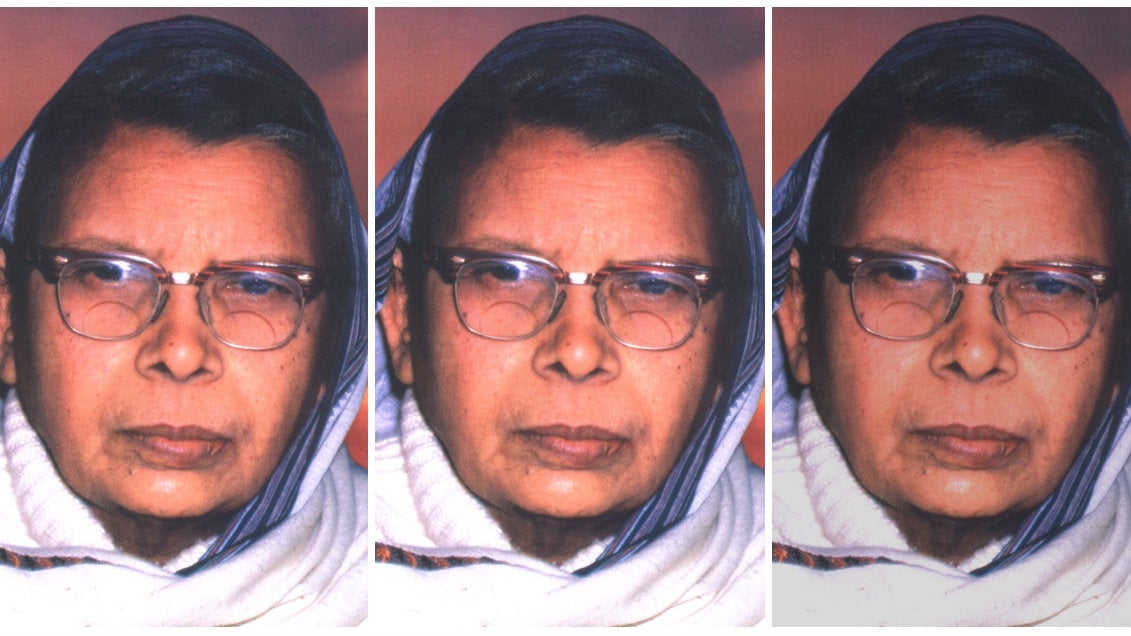The trailblazing female poet who helped create a new era in Hindi literature
In the 1920s, a time when few Indian girls could dream of finishing school and being anything other than housewives and mothers, one woman discovered a love of writing and went on to become one of the key figures in a new era of Hindi poetry.


In the 1920s, a time when few Indian girls could dream of finishing school and being anything other than housewives and mothers, one woman discovered a love of writing and went on to become one of the key figures in a new era of Hindi poetry.
On April 27, Google Doodle celebrates the life and work of Mahadevi Varma, a poet, translator, educator, and women’s rights activist who played a major role in the Chhayavad movement of Hindi literature. The word chhayavad is hard to translate into English, but it’s often referred to as a period of romanticism (link in Hindi) marked by writing that prioritised emotions and the individual experience, a stark departure from earlier modes of Hindi poetry.
Born in 1907 in what is now Uttar Pradesh, Varma was encouraged to complete her education by her parents. It was while pursuing a master’s degree in Sanskrit that she began writing poetry, at first in secret, before being discovered by her roommate, Subhadra Kumari Chauhan, who was also a poet. Together, they went on to attend poetry seminars, present their work to the public, and even get published in magazines.
Varma wrote around 30 books of poems and prose, and in many she detailed the female experience and her support for women’s rights. In 1941, she published Atteet ke chalachitra (Sketches from My Past), a short-story collection about the women she met while working as a principal at a girls’ school. And in her biography, Mere Bachpan Ke Din, she wrote about how lucky she had been to have be born to a liberal family at a time when girls were considered a burden.
In 1956, Varma was awarded the Padma Bhushan, the third-highest civilian award in India. And in 1982 she received the Jnanpith award, which is given to writers who have made an “outstanding contribution” toward regional-language literature. She was presented the award by then British prime minister Margaret Thatcher, who in her speech highlighted Varma’s efforts toward improving education for women while she was principal of the Mahila Vidyapith women’s college in Allahabad:
Under her direction the Mahila Vidyapith system not only made higher education more accessible to the women of India but offered a course of study which did not upset the accepted social and cultural patterns. As principal of the Mahila Vidyapith College she instilled in the girls studying under her a genuine love of literature. She taught them pride and self-respect, and the validity of their own contribution to Indian life. These first steps have paved the way for the subsequent great expansion of women’s education in India—an expansion in the number of women in higher education: and an even greater expansion in the number of women achieving basic literacy. That is an achievement of which Mahadevi Varma, and India, can be truly proud.
To end her speech, Thatcher quoted from one of Varma’s own poems, in which the legendary writer expressed the courage required to brave the challenges of an unconventional life, advice that is as appropriate for Indian women today as it was back then:
Take the boat to midstream; though it sink, you shall get across; let dedication be your only helmsman; he will see you through.
Feature image by Pratham Kailasiya on Wikimedia Commons, licensed under CC BY-SA 4.0.